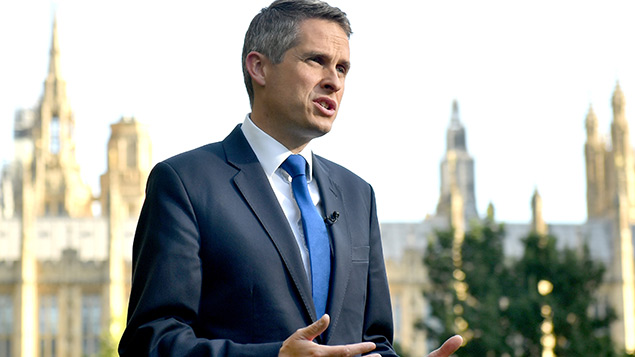[ad_1]

Gavin Williamson
PA News
The MBA element of level 7 senior leader apprenticeship standards is to be removed after being queried by the education secretary.
The Institute for Apprenticeships and Technical Education (IfATE) has responded to a letter from education secretary Gavin Williamson sent in late February to its chief executive, Jennifer Coupland, that questioned whether using apprenticeships for MBAs was providing good value for money. Williamson asked for a formal review.
In response, IfATE worked with the Leadership and Management Trailblazer (a group of employers) to develop a revamped version of the occupational standard and end-point assessment (EPA) plan without the MBA.
The IfATE stated: “As a senior leader, there is no regulatory requirement to hold such a qualification [an MBA], there is no requirement to be a member of a professional body and an individual would not be significantly disadvantaged in the senior leader job market without such a qualification.”
“The trailblazer has agreed to revise the occupational standard on this basis, focusing on ensuring that passing the revised end-point assessment (still to be drafted) will provide all the necessary assurance that full competence will have been achieved.”
IfATE added: “An employer group have looked closely at the senior leader level 7 following the request for a review by the secretary of state.
“This apprenticeship sets out the knowledge, skills and behaviours employers require of competent senior Leaders and any qualifications must fit this criteria.
“The employer group have made a clear recommendation, which we are now consulting on. We want to hear from as many people as possible.”
The level 7 senior leader apprenticeship was launched in February 2018 and can lead to apprentices gaining a master’s degree in management, either MA, MSc or MBA. It is has proved highly popular since its launch in February 2018.
According to FE Week, there were 6,387 starts on the programme up to the end of the first quarter of 2019-20. And with each start worth £18,000 from the apprenticeship levy pot, it is calculated that well over £100m has been spent on this standard.
A public consultation on the new standard will run until 29 April with a the new standard’s funding future to be decided by 1 June.
Using the levy for high level qualifications has always been controversial within the training sector with Amanda Spielman, Ofsted chief inspector, among critics. She told the 2019 annual apprenticeship conference: “What is of concern is the fact that levy money is not always being spent in the intended way. So, for example, on graduate schemes that are in effect being ’re-packaged’ as apprenticeships.”
At the time of the apprenticeship levy’s launch, the CIPD warned there was evidence that many employers would simply use it to re-badge existing learning and pass it off as apprenticeship training. The implication is that management training including MBAs was already provided by organisations.
Williamson’s letter in February informed Coupland: “I am unconvinced that having an apprenticeship standard that includes an MBA paid for by the levy is in the spirit of our reformed apprenticeships or provides value for money. I question whether an MBA is an essential regulatory or professional requirement to work in this field of senior leadership.
“I am committed to maintaining an employer-led system, but I’m not convinced the levy should be used to pay for staff, who are often already highly qualified and highly paid, to receive an MBA.
“I’d rather see funding helping to kick-start careers or level up skills and opportunities. That’s why I’ve asked for a review of the senior leader apprenticeship standard to ensure it is meeting its aims.”
In January, a report by EDSK’s Tom Richmond, called Runaway Training, cited the fact that the number of Level 2 apprenticeships had fallen since the levy was introduced (in the 2017-18 tax year) by 15 percentage points whereas training at Levels 4-7 had grown by nine percentage points. He concluded that higher level apprenticeships were more expensive to deliver so this trend was leading to high levels of overspending. Richmond proposed that the levy should not be used for degree and masters level training.
IfATE stated that it would share all responses to the consultation with the trailblazer group “so they can produce a final version of the occupational standard currently intended for submission to the institute’s approvals process by 20 May”.
Training opportunities on Personnel Today
[ad_2]
Source link





